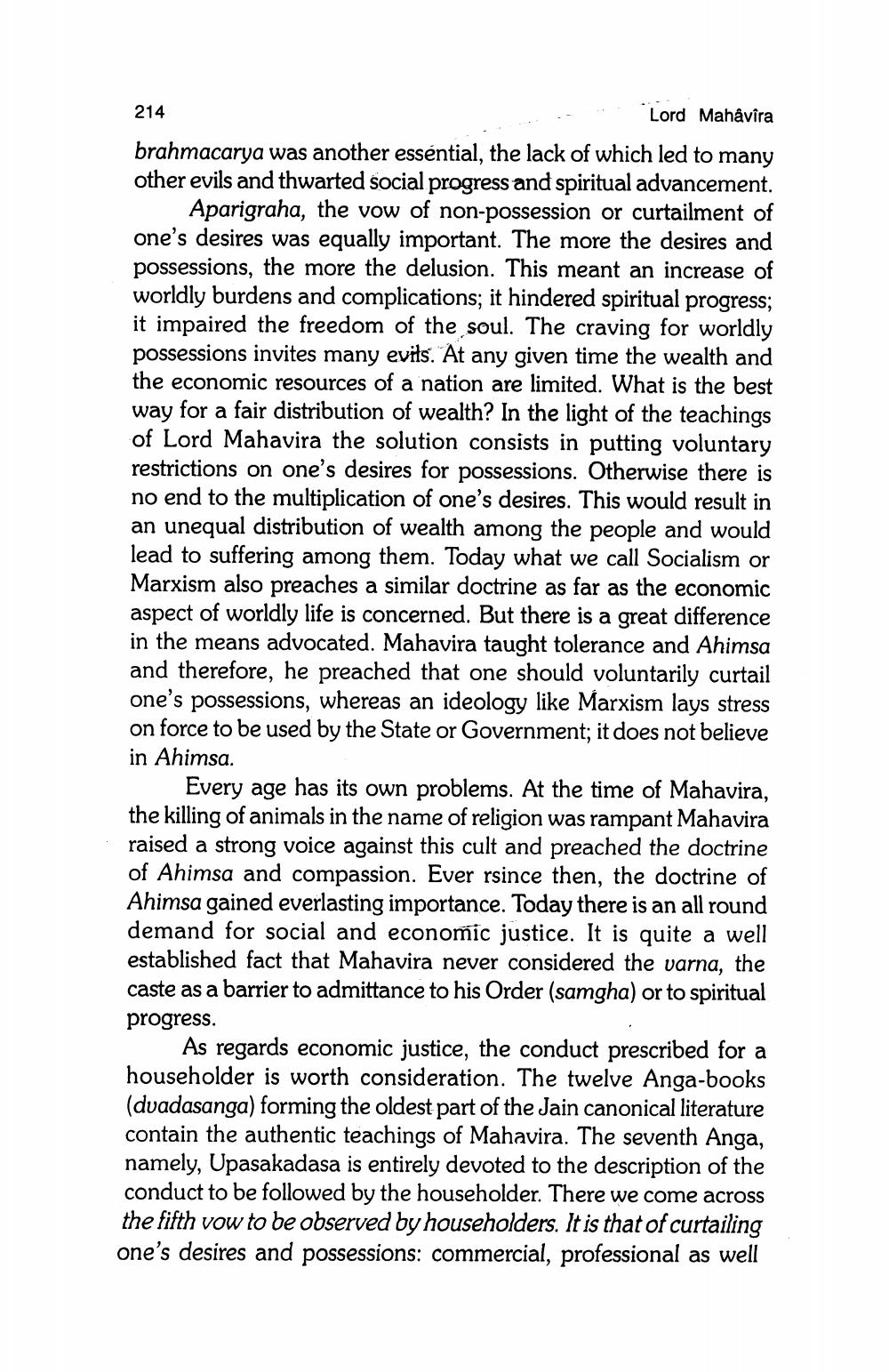________________
Lord Mahâvîra
brahmacarya was another essential, the lack of which led to many other evils and thwarted social progress and spiritual advancement. Aparigraha, the vow of non-possession or curtailment of one's desires was equally important. The more the desires and possessions, the more the delusion. This meant an increase of worldly burdens and complications; it hindered spiritual progress; it impaired the freedom of the soul. The craving for worldly possessions invites many evils. At any given time the wealth and the economic resources of a nation are limited. What is the best way for a fair distribution of wealth? In the light of the teachings of Lord Mahavira the solution consists in putting voluntary restrictions on one's desires for possessions. Otherwise there is no end to the multiplication of one's desires. This would result in an unequal distribution of wealth among the people and would lead to suffering among them. Today what we call Socialism or Marxism also preaches a similar doctrine as far as the economic aspect of worldly life is concerned. But there is a great difference in the means advocated. Mahavira taught tolerance and Ahimsa and therefore, he preached that one should voluntarily curtail one's possessions, whereas an ideology like Marxism lays stress on force to be used by the State or Government; it does not believe in Ahimsa.
214
Every age has its own problems. At the time of Mahavira, the killing of animals in the name of religion was rampant Mahavira raised a strong voice against this cult and preached the doctrine of Ahimsa and compassion. Ever rsince then, the doctrine of Ahimsa gained everlasting importance. Today there is an all round demand for social and economic justice. It is quite a well established fact that Mahavira never considered the varna, the caste as a barrier to admittance to his Order (samgha) or to spiritual progress.
As regards economic justice, the conduct prescribed for a householder is worth consideration. The twelve Anga-books (dvadasanga) forming the oldest part of the Jain canonical literature contain the authentic teachings of Mahavira. The seventh Anga, namely, Upasakadasa is entirely devoted to the description of the conduct to be followed by the householder. There we come across the fifth vow to be observed by householders. It is that of curtailing one's desires and possessions: commercial, professional as well




